Heavy Periods

Every woman’s periods are different, and it can be difficult to assess whether or not your bleeding is heavier than it should be. Periods are obviously a personal subject, and most of us have no way of knowing if our bleeding is the same as that of our friends or anyone else. How do specialists gauge it? Well, thanks to a number of women who sent their sanitary towels and tampons to a lab for analysis, we now know what is considered to be ‘normal’.
On average, we lose about 6-8 teaspoons (35ml), or about half an eggcup, over the course of a period. Some women lose more and others less, but this figure acts as a benchmark for an average woman in an average cycle.
Are your periods heavy?
The easiest way to gauge whether your periods are unusually heavy is to work out how often you are changing whatever form of protection you are using. For example, if you have to change your tampon or pad every hour or sooner, or if you frequently leak in the night, chances are your periods are abnormally heavy.
For some women, symptoms are so extreme that they will actually flood to the point of haemorrhaging. I have had women describe flooding through their clothes and all over the car seat while driving. The blood may also contain clots that look like pieces of liver, which can be alarming. Some women have said that their flow has become so unpredictable and intense that they cannot stray far from a toilet. Many women reach the point where their lives are being planned around their periods.
When your period begins to affect the quality of your life and your ability to work, it’s undoubtedly something that must be addressed.
What are the symptoms?
Depending upon the cause of the heavy periods (also called menorrhagia), you may experience cramping or other symptoms. Heavy periods that cannot be medically explained often have no other symptoms.
What are your choices?
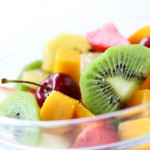
For many women with heavy periods, there is nothing wrong from a gynaecological point of view, except for the fact that there is excess bleeding. You may be building up more womb lining than necessary, which needs to be shed every month. Furthermore, your womb, which functions as a muscle, may be poorly toned, causing more bleeding than normal.
One of the aims of the natural approach to heavy periods is to ensure that your hormones are balanced. If you have excess oestrogen, your womb lining can build up. Not only is what you eat important but supplements are added to make the dietary changes more effective in a shorter period of time. Some are recommended because they have definitely been found to be deficient in women who have heavy periods and others have been recommended because they can work on balancing hormones and hormone-like substances in your body, which may be causing the heavy bleeding.
Supplements
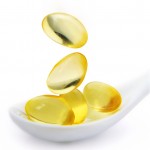
Multivitamin and Mineral
A good quality multivitamin and mineral would form the foundation of your supplement programme to make sure that you are getting a ‘little bit of everything’. You then add in those nutrients in slightly higher amounts which are known to be helpful for heavy periods.
Vitamin A
Vitamin A is an antioxidant that generally helps to protect your cells against damage. It helps cells reproduce normally and is also needed for red blood cell production. Vitamin A deficiency has been found in women with heavy periods. One study showed that 92 percent of women prescribed supplemental vitamin A found that their heavy bleeding was either cured or alleviated.
B vitamins
The B vitamins are particularly important for heavy periods for a number of reasons. First and foremost, they are needed by the liver to convert excess oestrogen into weaker and less dangerous forms. One of the B vitamins, B6, is needed for the production of beneficial prostaglandins which help reduce abnormal blood clotting.
The B vitamins are also crucial for the conversion of essential fatty acids (EFAs) beneficial prostaglandins. The B vitamins are required to convert EFAs that can be used by the body to produce the ‘good’ type of prostaglandins. Without this conversion, your body will produce more of the ‘bad’ prostaglandins which will increase the amount of bleeding at each period.
Vitamin C
Vitamin C and bioflavonoids help to strengthen the capillaries in the body, which can reduce heavy bleeding. Taken as a supplement, vitamin C has also produced excellent results for many women with heavy periods. One study showed that taking 200mg of vitamin C with bioflavonoids, three times daily, reduced bleeding in 87 percent of the women tested.
Zinc
This mineral is vital for the healthy functioning of the reproductive system and for hormone balance.
Iron
If you are bleeding very heavily, you may run the risk of becoming anaemic. Common symptoms of anaemia include fatigue, loss of appetite, constipation, irritability and pallor, among other things. If these symptoms seem familiar, see your doctor who will arrange tests. When you are tested for anaemia, the lab measures the level of iron available in your red blood cells (haemoglobin). However, iron is also stored as ferritin in other parts of the body, such as the spleen and liver. When your doctor orders tests, make sure that both your haemoglobin and ferritin are checked, as it is possible to be iron deficient even if your haemoglobin levels are normal.
Iron deficiency is a bit of a double-edged sword. If you bleed heavily throughout your periods, you will be more likely to be iron deficient. However, one of the symptoms of iron deficiency is also an increased risk of heavy bleeding. Iron helps the blood vessels to contract, which is need to slow down the flow during your periods.
If tests suggest that you are iron-deficient, take extra iron (as iron citrate) at 14mg per day. Vitamin C is essential for the body to absorb iron, so for maximum absorption take 1000mg (1 gram) of vitamin C with your iron supplement ON AN EMPTY STOMACH. Avoid taking iron and vitamin C alongside any other supplements you may be taking.
Avoid taking iron in the form of ferrous sulphate (also called iron sulphate), which is less easily absorbed by the body. Only 2 to 10 percent of the iron from this type of iron supplement is actually absorbed by your body, and even then, half is eliminated, causing blackening of your stools and constipation.
Ferrous sulphate is classed as an inorganic iron. Organic irons are much more easily absorbed and do not affect your bowels in same way. There are organic irons available from www.naturalhealthpractice.com.
Try to avoid drinking regular black tea with your meals, as it blocks the uptake of iron from your food. Similarly, phosphates, found in fizzy soft drinks, will prevent iron from being absorbed by the body. Herb teas and fruit juices are fine.
Omega 3 Fatty Acids
These essential fats have a profound effect on every system of the body, including the reproductive system and they are crucial for healthy hormone functioning.
Many of the women I see in the clinic have been taking evening primrose oil supplements – an Omega 6 fatty acid – for years and have not been eating enough Omega 3 oils, or taking them in supplement form, to counterbalance this. Some women are also taking combinations such as Omega 3, 6, and 9 in supplement form because they have heard that we need a good balance of all the Omega fatty acids. This is true, but you have to take into account what your own levels may be in the first place. It is no good adding in more Omega 6 if you have already got enough or in fact too much in your body. (You can now have a blood test to tell you if you have the correct levels of Omega 3 to Omega 6 in your body see below). To check whether you have sufficient levels of Omega 3 please click Omega 3 Deficiency Test (at home finger prick blood)
One of the drugs used for heavy periods, mefanamic acid, works by controlling ‘bad’ prostaglandins, which can increase the flow of blood. It is possible to mimic the effects of this drug by making changes to your diet – in particular, to your intake of Omega 3 fatty acids.
Both red meat and dairy produce contain something called arachidonic acid. This substance encourages the production of a ‘bad’ type of prostaglandin (called PGE2) that leads to increased blood flow, and a reduced blood-clotting ability. The result? Heavier periods. In fact, research has shown that women with menorrhagia have higher levels of arachidonic acid, causing more PGE2 to be made.
What this means in practice, is that women with heavy periods should ideally consume less arachidonic acid, which is found mainly in animal-based foods. The other goal is to increase levels of essential fatty acids, which create the ‘good’ type of prostaglandins. Beneficial prostaglandins help to reduce abnormal blood clotting, and they are produced from certain unsaturated fats, called essential fatty acids. Omega 3 fatty acids are found in oily fish (including mackerel and salmon) and certain seeds such as linseed/flaxseed.
Furthermore, by adopting a healthier lifestyle you will be more likely to prevent heavy periods which is discussed in detail in the rest of this ebook which you can read by clicking on Understanding Heavy Periods ebook at The Natural Health Practice
Herbs

Agnus Castus
This herb has a balancing effect on your hormones in general and can be a useful herb for regulating the bleeding.
For other useful herbs for heavy periods see my e-book ‘Understanding Heavy Periods’ or my book ‘The Natural Health Bible for Women’.
Caution
You should not take any of the above herbs if you are taking, The Pill, Fertility drugs, HRT or any other hormonal treatment or other medication unless they are recommended by a registered, experienced practitioner.
Tests
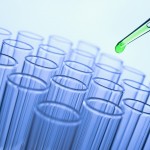
Mineral Deficiency Test with Supplement Programme (hair)
Find out what the mineral and heavy toxic levels are in your body
This test measures the deficiencies and excess levels of 12 different minerals (including calcium, chromium, cobalt, copper, iron, magnesium, manganese, phosphorus, potassium, selenium, sodium and zinc) and 6 heavy toxic metals (including aluminium, arsenic, cadmium, lead, mercury and nickel) that may be present in your body. Find out more – Mineral Deficiency Test with Supplement Programme (hair)
Online Personalised Supplement Assessment Programme
Discover what vitamins and minerals you need and should be taking
The analysis of this comprehensive questionnaire will give you a three monthly supplement programme to help balance any vitamin and mineral deficiencies you may have. Find out more – Online Personalised Supplement Assessment Programme
Omega 3 Deficiency Test (at home finger prick blood)
If you want to find out if you are getting enough Omega 3 fatty acids from your diet and whether you have the correct balance of essential fatty acids.
Signs of an Omega 3 fatty acid are dry skin, lifeless hair, cracked nails, fatigue, depression, dry eyes, lack of motivation, aching joints, difficulty in losing weight, forgetfulness, breast pain. If you have also tried to lose weight by going on a low-fat or no-fat diet, you are likely to be deficient in these essential fats. It is also extremely important with heavy bleeding that you have good levels of Omega 3 fatty acids. It is now estimated that we are getting ten times more Omega 6 fats from our diet than Omega 3 and over the last century there has been an 80% decrease in the consumption of these Omega 3 fatty acids. When you eat Omega 3 fats they are converted to substances that have an anti-inflammatory effect on the body.
Many of the women I see in the clinic have been taking evening primrose oil supplements – an Omega 6 fatty acid – for many years as it can be helpful with PMS. But you can end up with too much Omega 6 and not enough Omega 3 in your body. Some women are also taking combinations such as Omega 3, 6, and 9 in supplement form because they have heard that we need a good balance of all the Omega fatty acids. This is true, but you have to take into account what your own levels may be in the first place. It is no good adding in more Omega 6 if you have already got enough or in fact too much in your body. (You can now have a blood test to tell you if you have the correct levels of Omega 3 to Omega 6 in your body see below). To check whether you have sufficient levels of Omega 3 please click Omega 3 Deficiency Test (at home finger prick blood)
After three months you would then have a re-test in order to monitor your progress and adjust your supplement programme according to your new condition.
If you need help in obtaining any of the supplements, herbs or tests mentioned above, click, Heavy Periods options at The Natural Health Practice. They can supply all of them for you online or if you prefer to talk to somebody first you can also order by mail order on the telephone. The products supplied by this company are always of the highest quality.
Plan of Action
Nutrition
Ensure you are getting the right nutrition.Follow the dietary recommendations outlined in the free The Foundation of Health ebook For more information on the special dietary recommendations for heavy periods, read the rest of the ebook on Understanding Heavy Periods ebook at The Natural Health Practice
Supplements
The supplement programme below should be taken for at least three months in order to achieve best results
Nutrients & amounts
| A good multi-vitamin & mineral supplement | Vitamin C with bioflavonoids | 1000mg | |
| Vitamin A as beta-carotene, not retinol* | 9mg | Omega 3 fish oils | 770mg EPA & 510mg DHA |
| Vitamin B complex | 25mg | Zinc | 15mg |
| Iron | 14mg |
* High doses of vitamin A are only a problem if you are planning a pregnancy. However, this caution applies only to vitamin A as retinol. Vitamin A as beta-carotene is safe.
To avoid having to purchase numerous supplements for all of the above and to make the process easier, I have put together a supplement programme which contains all the nutrients mentioned above and in the correct dosages. For more information about these click Heavy Periods Supplement Programme.
In my book ‘The Natural Health Bible for Women’ I explain the impact of nutrition on heavy periods and also give in great detail a list of the most important nutrients and herbs required in order to help you.
If you would like to order these special supplements now, you can do so through the Natural Health Practice by clicking Heavy Periods supplements at the Natural Health Practice.
HerbsA good herbal formula should contain: |
Herbs & amounts
|
||
| At the end of three months you should reassess your condition and adjust your supplement programme accordingly. | |||
Tests
The tests below have been specially selected to be the most helpful if you are concerned about heavy periods.
Mineral Deficiency Test with Supplement Programme (hair)
Online Personalised Supplement Assessment Programme
Omega 3 Deficiency Test (at home finger prick blood)
After three months you would then have a re-test in order to monitor your progress and adjust your supplement programme according to your new condition.
If you need help in obtaining any of the supplements, herbs or tests mentioned above, click, Heavy Periods options at The Natural Health Practice. They can supply all of them for you online or if you prefer to talk to somebody first you can also order by mail order on the telephone. The products supplied by this company are always of the highest quality.
Read More
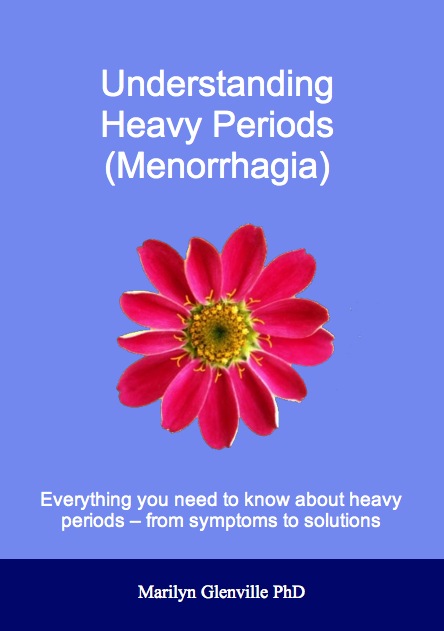
The section above forms part of a larger ebook on Heavy Periods.
In the rest of the ebook you will learn what the medical approaches to heavy periods are and how to combine them with the natural approach. This is called Integrated Medicine and is the way that healthier of the future is moving towards. You will also learn what medical tests will give you an accurate diagnosis of your condition and if you really need to have them. The medical treatments for heavy periods are then examined which can include looking at either drugs or surgery. Each treatment is then discussed and the pros and cons of the options explained. The Integrated Approach to heavy periods is considered in some detail so that if appropriate you can know how to combine the best of both conventional and natural medicine.
At the end of the ebook is a practical step by step summary of what you can do to help yourself.
If you would like to read the rest of this ebook click, Understanding Heavy Periods ebook at The Natural Health Practice and you will be given details of how you can download the whole ebook.
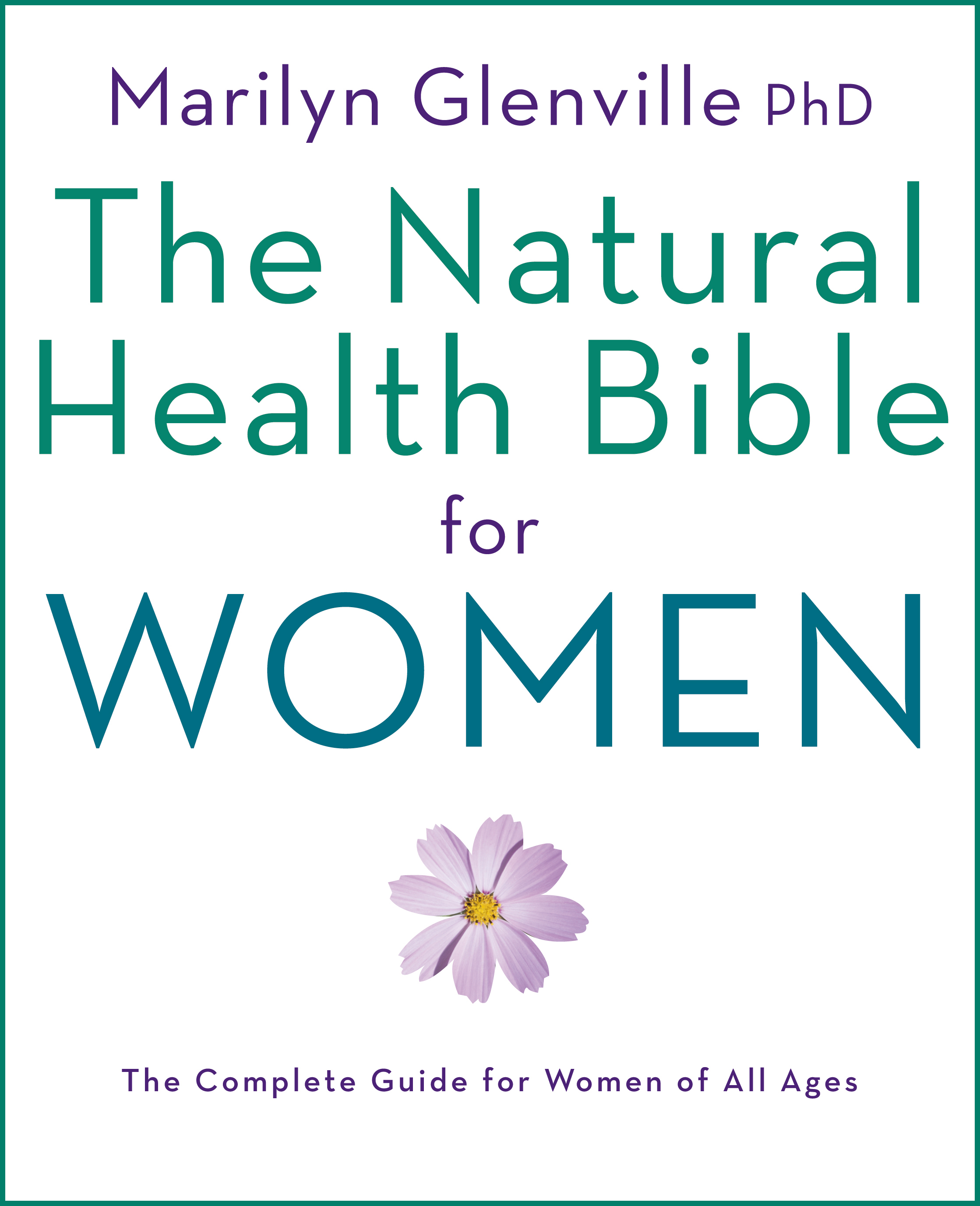
The contents of this site are for information only and are intended to assist readers in identifying symptoms and conditions they may be experiencing. This site is not intended to be a substitute for taking proper medical advice and should not be relied upon in this way. Always consult a qualified doctor or health practitioner, especially if you are pregnant, taking the pill or on any medication. Your situation will need to be looked at individually and you should not attempt to self treat. The author and publisher cannot accept responsibility for illness arising out of the failure to seek medical advice from a doctor.
The views expressed by third parties placing material on these pages are not representative of the views of the author or publisher. The Author and Publisher cannot monitor the content not produced by us and has not reviewed all the third party material published on this site and the Author and Publisher accept no liability whatsoever in relation to the content of third party material placed on these pages.

